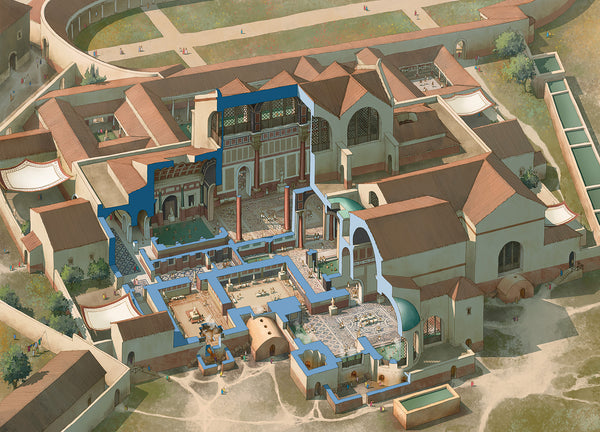Living in the past
My last blog post on Roman cataract surgery elicited quite a few responses from readers. On the one hand, it’s amazing that people in the ancient world were able to treat cataracts, even if it was just to eleviate the worst symptoms. On the other hand, I’m sure glad I live in an age with much more advanced medical knowledge.
Escaping the present
There are lots of people out there who claim they would love to live in the past. There’s something about the past that is comforting. For one, we have a pretty good idea of what life was like back then, whereas the future is a big empty void that we stare into and approach with trepidation. Who knows what tomorrow will bring? Yesterday, however, is in the past and therefore ‘fixed’, to a greater and lesser degree, and therefore holds comparatively few surprises.
I think this is probably what reenactors and living history interpreters find so appealing about what they do. They get to escape to the past and pretend to be someone else, existing in a time with clearly defined characteristics, for at least some time and without having to give up any modern amenities. After all, it’s much more comfortable – and quicker! – to drive to a living history event than it is to walk all the way or even to ride a horse.
Likewise, it can be fun to pretend to be a Roman centurion or a market trader, without actually having to deal with all of the problems that people in the past had to deal with, such as various health and hygiene issues and levels of poverty that we today find mostly in Third World countries. Indeed, recent research suggests that despite their fondness for baths and the use of sewers and toilets, the Romans still suffered from various parasites and diseases.
Downsides of living in the past
Indeed, parasites are perhaps the most disgusting elements in everyday life in the past that generally receive very little attention. From prehistory onwards, people often suffered from head aches and head injuries that were usually treated by removing a piece of the skull. In some instances, head aches were caused by the larvae of tape worms that were transmitted from dogs, and these could only be removed by opening the skull and scooping out the offending parasites. (Instances of this happening now are fortunately rare, as most dogs are regularly dewormed. Our standards of hygiene – both human and canine! – are also much higher than in the past.)
Trepanation – the removal of a piece of skull via drilling or scraping – was performed frequently, and the patients often seem to have survived the procedure. Wikipedia’s article on the subject is quite informative if you want to learn more about it. There are some useful pictures, too (at the time of writing this), including that of a Neolithic skull with definitive proof of the patient’s survival. The idea that such operations were done without any form of anaesthetic is probably not true; refer, for example, to Richard Rudgley’s Lost Civilizations of the Stone Age (1998).
Furthermore, afflications that are relatively minor today would have been fatal in ancient times. Appendicitis is a good example: it’s something that can be easily treated today, but in ancient times, when the removal of malfunctioning organs was unknown, a rupture of the appendix would have certainly proved lethal. And let’s not forget that a lack of hygiene could lead to even minor cuts to get infected, causing the amputation of limbs or death. And I haven’t even touched upon high infant mortality rates or the fact that many women would die in childbirth.
Finally, there are various social issues that make living in the past, at least for me, incredibly unappealing. These issues naturally don’t detract from the joy of studying the past – quite far from it: it’s a differences between then and now that make the past worth studying. But I wouldn’t want to live in a world with even vaster differences between the rich and the poor, or in a society that condones slavery or denies fundamental rights to women. No, if anything, I’d probably prefer to live in the future, especially if it looks anything like Star Trek! (And yes, my tongue is planted firmly in cheek.)
Let’s talk!
But enough of my blather. What do you think? Would you like to live in the past? Feel free to sound off in the comments, below.

